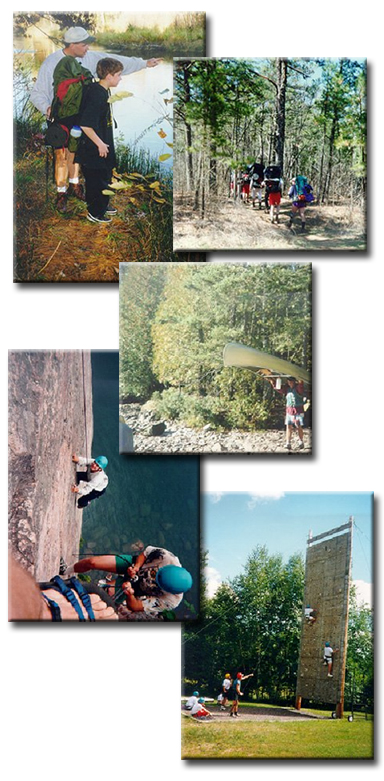| From Strugglingteens.com Visit Reports Frederic, Wisconsin Northern Wisconsin is renowned for its fishing, and Hayward is the home of North America's biggest cross-country ski race - the Birkebeiner. Who would have guessed that these same north woods are home to a gem of a treatment center for at-risk teens and, even more unlikely, home to an assessment center for 6 - 17 year olds that employs three - yes 3 - neuropsychologists on staff?!!
There are several especially notable program components that really set Passage apart. They include:
Half of the students were in school during my visit and I did have a chance to observe -- and to talk to -- some of them about their studies. Most felt they were doing better because they had more individualized attention. The other students were in woodworking, in the gym or doing restitution. As we walked around the three different campuses, I saw the results of students' restitution - lots of stacked wood that had been split and beautifully kept gardens and grounds. I talked with a few boys on a yard crew and they told me they felt good - that the physical aspects of the program were helping them get in shape - or buff, as one young man put it! Many of these students are from rural areas or small towns - and yet, because so many lack a strong relationship with an adult in their lives, have never gone fishing or hiking. More than one student - even some of the girls - talked about how much they were enjoying the out-of-doors. I saw the woodworking shop in action - and talked to a couple of boys about what they were learning there. Because I see a number of Midwestern families who always hope to find a quality program closer to home than Idaho, Utah or even New England, I was glad to visit the Passage system. I think the part of the program that most impressed me is their Assessment Center. Three talented line staff from a mental health hospital in Minneapolis started Passage I almost thirty years ago. Two of the partners are still on board. I had the good fortune of spending time with one of them, Steve Ammend. He has maintained strong relationships with the mental health community in the Twin Cities even though most of their kids come from Wisconsin. Among those relationships is one with the Medical School at the University of Minnesota. Over the years, the administration realized that many kids were enrolled with incomplete histories and limited (or no) assessment data coming along with them. In building what is now a comprehensive clinical diagnostic assessment and behavioral crisis intervention center providing psychiatric, neuropsychological, individual, family and social assessments for pediatric and adolescent boys and girls in a 30-day model, the founders' connections with the Medical School helped them attract staff - including the three neuropsychologists, a full-time pediatrician on staff and a consulting psychiatrist who is there regularly - doing far more than 15 minute med-checks with kids. They have just hired a board-certified child psychiatrist who will start full-time next summer. Mark Elliott, the Executive Director, gave me two impressive reports - with the names blacked out for confidentiality. Each has eight sections; Treatment & Placement Recommendations; Case Records Summary; Behavioral; Educational; and Child & Family/Chemical Health Assessments; Neuropsychological Evaluation; Psychiatric Evaluation; and the Health/Medical Discharge Summary and Notes. Passage has created a report that collects all of the important data on a child in one place - along with the results of their testing - and in a readable format with recommendations for next steps. Jane Doe took eleven tests and John Doe (not her brother) was administered a few more (16 total) in the month or so they were there for observation and assessment. While a few of the kids may wind up at one of the Passage Programs, by no means is this just a conduit for placement there. Since they test kids from age 6 to 17, the younger kids are not even age appropriate for those programs. Currently, about 10% of the kids being tested are private-pay clients - but the number of private-pay inquiries is increasing each month. Over a delightful lunch at a little place called the Wren, I met Nick Kalambokidis, the CFO of the organization, and David Ammend, MD, the pediatrician on staff. Carey, Steve and Mark were also there. We wrapped up our meeting with conversations about the rigorous exercise program all the kids participate in and about their plans for an improved nutrition program (to compliment all that exercise!) We also talked about IECA and NATSAP and about how Passage might reach out to other special needs consultants - including some ideas about the IECA meeting that will be in the Twin Cities next spring. So, if you are headed for northern Wisconsin any time soon, either to fish the summer or to ski in the winter, give Carey a call and go visit. I think you'll be glad you did. © Copyright 2012 by Woodbury Reports, Inc. |
